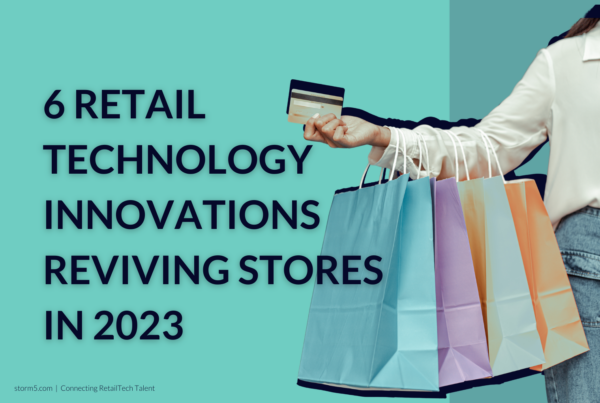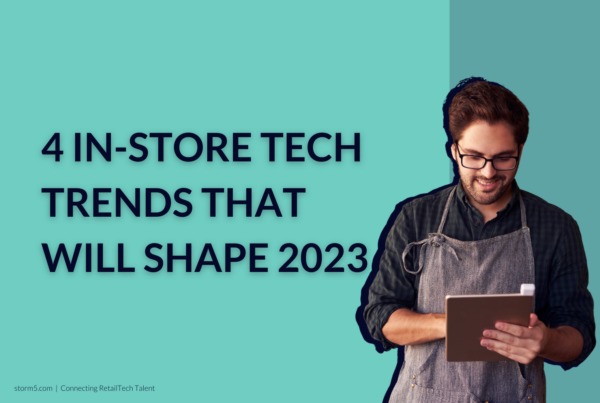Is The Future Of Retail In The Metaverse?
The Metaverse, not to be confused with Facebook’s rebranding as Meta, is more than just the latest tech buzzword. The term has been around since…

The Metaverse, not to be confused with Facebook’s rebranding as Meta, is more than just the latest tech buzzword. The term has been around since the early 1990s, but it is now used to describe a multifaceted connection between the physical and virtual worlds.
Still not up to speed? Don’t fret! Research from YouGov and The Drum found that only 31% of US adults polled claim to have a very good, or somewhat good, understanding of what the metaverse is.
The metaverse has the potential to completely transform how we interact with the world around us. our surroundings. This article will delve into what the metaverse is, how it is disrupting retail, and how it may affect the future of retail.
What is the Metaverse?
Simply put, the metaverse is a three-dimensional virtual world that combines physical and virtual reality in a shared, persistent environment. Consider it as a three-dimensional representation of the internet.
You no longer have to interact with 2D web pages as the metaverse allows you to explore the internet in 3D environments. The concept of shared, connected, common space that connects the digital and physical worlds is central to the metaverse. Users will feel as if they are a part of what Zuckerberg refers to as an embodied internet. All of this will be possible thanks to a convergence of technologies such as 5G, 3D, AR, VR, blockchain, cryptocurrency, cloud computing, and even social commerce. So, is the future of retail in the Metaverse?
The Merging of Two Worlds
As traditional brick-and-mortar stores declined in popularity because of the eCommerce explosion, consumers grew accustomed to the convenience of online shopping and quickly embraced the new format. However, despite its growth, e-commerce has yet to fully replace the in-person shopping experience that consumers have grown to expect and enjoy.
Retailers can better meet customers’ needs by merging the in-store experience with digital elements. The Metaverse can provide this as users can interact with products they wish to purchase in real-time using their own unique virtual avatar.
users can engage with products that they want to purchase in real-time using their own personalized virtual avatar. In a virtual Metaverse store, users can enter the store, walk around, see the products they want to purchase, socialise with others, learn more about the product(s), and then buy it. This fundamentally changes our perceptions of physical and virtual stores, resulting in a completely new way of shopping that will also lead to new consumer behaviour.
In the future of retail in the metaverse, users would also be able to shop for their virtual avatars. Stores might offer one-of-a-kind clothing and accessories that allow customers to modify their online persona to better represent their physical or idealized selves. To merge the physical and virtual worlds, physical product merchants could add digital gear for avatars with qualifying purchases, demonstrating the feasibility of the direct-to-avatar business model.
3 Ways Retailers Are Embracing the Metaverse
Although shopping in the Metaverse might be a new notion for many consumers, it is already being adopted by a variety of brands and businesses. Some of the most common cases include:
- Extended Reality – Many retailers already use the likes of virtual reality and augmented reality to create new, immersive customer experiences. For example, Nike allows customers to scan items like shoes or clothing to view information, or they can enter a VR world to experience the different steps in Nike’s supply chain so they understand how and where items are being made.
- Digital Fashion– Retailers are exploring the possibilities of digital fashion to empower more creative expression in the digital world, bridging the gap between virtual and real-world fashion in an accessible, inclusive way. Vans launched a digital store in Roblox which allowed virtual visitors to try on and buy original Vans footwear as well as skate on the Vans Off the Wall-inspired skatepark.
- NFTs (non-fungible tokens)– Retailers are scrambling to invest in NFTs to ensure that no one takes the metaverse’s existing value proposition once it manifests. Since it can be validated and traced all the way down to the location, time, and date of creation, an NFT can raise the value of a physical product. GameStop will establish an NFT marketplace later this year in collaboration with blockchain company Immutable.
Future of the Metaverse and Retail Relationship
Currently, the question “How does the metaverse change retail?” raises a lot of concerns. If you look at the progress made in integrating metaverse for various cases in the retail industry, you’ll notice that everything is still in the experimental stage. Will metaverse applications be able to withstand the test of time?
Almost 59% of consumers prefer to buy clothes, shoes, and accessories online, according to The Digital Life Index. So, it’s unrealistic for leading retailers to dismiss the metaverse’s potential. At the same time, brands should keep in mind that consumers are searching for more than just online experiences.
However, the experiences are what would drive the popularity of the metaverse. Even if the experiences initially appear to be similar to traditional consumer behaviour and store experiences, they will eventually become distinct.
The introduction of a metaverse in retail would open a slew of new possibilities for brands. The metaverse would, first and foremost, bring customers and brands closer together. Furthermore, in the metaverse, consumers have more opportunity to interact with products and assess their value. The metaverse can expand the customer base for a variety of new brands by providing significant value and increased accessibility above conventional online shopping experiences.
If retailers wish to advance in the retail revolution, now is the time to learn more about the metaverse and its powers.
How Storm5 Can Help
RetailTech is a disruptive and innovative industry. Storm5, as the leading RetailTech and e-commerce talent marketplace, understands the value of connecting top talent with strong foresight to emerging RetailTech globally. We believe that with the right people on board, your RetailTech will be able to thrive in this ever-changing industry. We can help you find your next hire thanks to our niche recruitment specialisation. Get in touch with us right away to learn more!







